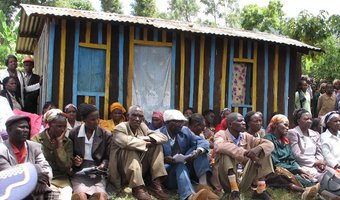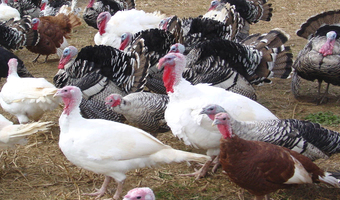 Traditionally used for pooling resources and assisting members in social support, Kenya’s savings groups fondly referred to as chamas have now moved to the farms assisting members reduce cost of labour by upto 40 percent.
Traditionally used for pooling resources and assisting members in social support, Kenya’s savings groups fondly referred to as chamas have now moved to the farms assisting members reduce cost of labour by upto 40 percent.
Various savings groups mostly led by women have now moved to the farms assisting fellow members in the entire food production process from land preparation to harvest. And the members are counting their gains. The chama members plough one farm after another helping each other cut huge expenses, which many farmers incur as they hire tractors or pay people to cultivate their farms.
“We are a group of 10 members. We met late last month and came up with a schedule of how we are going to plough each other’s farms,” said Salome Aluvale, an official of a savings group in Shinyalu, western Kenya.
Aluvale noted that they normally plough their farms this month every year. According to Kenya’s Meteorological Department, most parts of the country are generally sunny and dry this month.
The dry weather conditions are thus conducive for the cultivation of land in readiness for the long rains season in March. “We have already ploughed three farms since the month started. We normally plough two or three farms in a week depending on the size,” she said. Most of the members of Nguvu Women’s Group, according to Aluvale, have about an acre piece of land.
“Only three have about two acres. To ensure fairness, we have agreed that those with bigger farms than others pay 12 U.S. dollars for the extra portion,” she said. Aluvale recounted that the women usually start the work as early as 6am. “We carry our hoes to the farm and once everyone has arrived at the agreed time, we start the work. We will work for about two hours and then take a break,” she said.
They will resume after having breakfast or any other refreshment provided by the host. “The meal is the only expense the farm owner incurs, that is if her farm is not bigger than an acre. Our aim is usually to complete ploughing the farm in a day if it is about an acre. If we do not, we usually return the following day, then take a day’s rest before moving to another farm,” explained Aluvale.
The secretary of the group said they resorted to the practice after seeing members incur huge expenses to prepare their farms. “Some would take loans of up to 117 dollars from the group so that they can prepare their land. We discussed the matter in the group and came up with the idea of ploughing each other’s land. We then set the rules,” she said.
Nguvu, as many other chamas, in Kenya started purely as savings group, where members would contribute money weekly, take loans and engage in investments. “We saw it was important to help each other till land this time of year since some members used to do it themselves or incur huge expenses by hiring people,” said Aluvale, whose group owns two cows, which generate income.
In the area, it costs Sh350 per person to hire people to plough land. Four people plough an acre of land in at least two days. Alternatively, it costs one Ssh10,000 to hire a yoke of three oxen to plough an acre of land. The cost rises further if one uses a tractor and when demand is too high.
“It is three years since we started ploughing each other’s farms and it has worked well with us. Members can use money saved to buy fertiliser, seeds and other farm implements,” said Aluvale, who noted that members who cannot make it for the ploughing session usually pay at market rate for their absence.
Western Kenya-based agriculture extension officer Bernard Moina said the practice of groups helping each other till land is widespread in the region and others across the country, especially among women. “Women are better organised when it comes to forming financial and social groups and there are many things that unite them, which makes it easier to organize themselves and plough land,” he said.
Moina noted that prices of farm implements have shot up thus women groups come in handy to help farmers reduce costs or raise income. “Here in Kitale, there are women who have organised themselves into groups, which are hired by farmers to plough their lands. It is a similar concept like the one which members help each other till their land. However, the former helps chama members generate income,” he said.
Moina lauded the practice, saying he encourages it as an agricultural officer since most smallholder farmers do not have cash to enable them hire a yoke or tractors. “Any practice that can help the country be food secure should be encouraged. Women are showing us the way, we should support them,” he said.
Aluvale observed that their aim is to buy a tractor or a yoke to generate income for the group.
Write comment (0 Comments)



 A project to draw farmers to the neglected bee farming is yielding results with farmers in the trade now earning upto Sh400 for a kilo of honey and spending less on space and expenses.
A project to draw farmers to the neglected bee farming is yielding results with farmers in the trade now earning upto Sh400 for a kilo of honey and spending less on space and expenses. Patrick Mwangi an enterprising farmer from Mathioya County is rewriting the rules of agribusiness in poultry farming having shrugged off temptations of joining the quail craze but focusing on the more neglected turkey.
Patrick Mwangi an enterprising farmer from Mathioya County is rewriting the rules of agribusiness in poultry farming having shrugged off temptations of joining the quail craze but focusing on the more neglected turkey.










